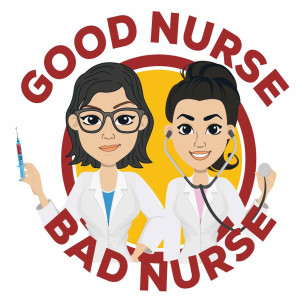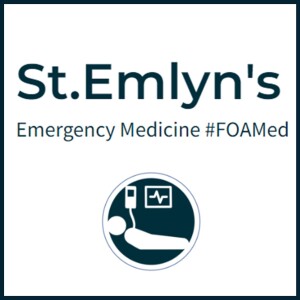The latest CAN is one of our brand-new 'revision editions' -- brief podcasts aimed at covering the essentials of critical appraisal for medical students and junior doctors preparing for exams.
With the help of Gregory Yates, an academic doctor based in Manchester, this episode introduces two core concepts: sensitivity and specificity. These are two ways of thinking about the accuracy of a diagnostic test. Knowing the sensitivity and specificity of an investigation will give you a decent idea of how it should be used in the emergency department.
Sensitivity (Sn) describes the chance that a test will be positive if your patient has the condition you're testing for. Some people call it the 'true positive rate' or alternatively the positivity in disease (PID) rate. If you need a hand remembering it, you can always remember that PID is a sensitive issue.
Meanwhile, specificity (Sp) considers the chance of a test being negative if the patient doesn't have the condition you're testing for. It's the 'true negative rate' or alternatively the negativity in health (NIH) rate. There are times when we particularly need a test to have a high sensitivity. This is generally when we want to be particularly confident that a test accurately identifies everyone with the relevant condition because we really don't want to miss it. We need a high sensitivity to rule out disease. (Sn-uff it out). At other times, we need to be confident that a patient with a positive test actually has the disease - for example, if the treatment is unpleasant or involves exposing patients to risk. In that case, we want a high specificity to rule in disease. (Sp-in it in).
In this CAN, we use D-Dimer as an example of a very sensitive investigation: it’s positive in nearly 100% of cases of venous thromboembolism. Specificity describes the likelihood that the test will be negative if your patient does not have the disease. We use HbA1c as an example of a highly specific investigation: it’s rarely used in the emergency department, but if it’s elevated, we can be almost certain that the patient is diabetic. HbA1c is almost never (
More Episodes
Ep 208 - What is Wellbeing with Liz Crowe
 2022-12-10
2022-12-10
 4.4k
4.4k
Ep 207 - Burnout with Liz Crowe
 2022-11-27
2022-11-27
 4.7k
4.7k
Ep 206 - October 2022 Round Up
 2022-11-14
2022-11-14
 4.1k
4.1k
Ep 205 - September 2022 Round Up
 2022-10-18
2022-10-18
 4.5k
4.5k
Ep 204 - August 2022 Round Up
 2022-10-08
2022-10-08
 4.2k
4.2k
Ep 203 - June and July 2022 Round Up
 2022-08-07
2022-08-07
 4.8k
4.8k
Ep 202 - May 2022 Round Up
 2022-06-16
2022-06-16
 4.8k
4.8k
Ep 201 - March/April 2022 Round Up
 2022-05-12
2022-05-12
 5.0k
5.0k
Ep 200 - February 2022 Round Up
 2022-03-25
2022-03-25
 5.4k
5.4k
Ep 199 - Feedback: Update and inter-speciality complexity. St Emlyn’s
 2022-03-12
2022-03-12
 5.3k
5.3k
Ep 198 - January 2022 Round Up
 2022-02-22
2022-02-22
 5.9k
5.9k
Ep 197 - December 2021 Round Up
 2022-01-14
2022-01-14
 5.3k
5.3k
Ep 196 - November 2021 Round Up
 2021-12-14
2021-12-14
 5.1k
5.1k
Ep 195 - October 2021 Round Up
 2021-11-19
2021-11-19
 5.4k
5.4k
Ep 194 - August 2021 Round Up
 2021-09-25
2021-09-25
 5.7k
5.7k
Ep 193 - June and July 2021 Round Up
 2021-08-08
2021-08-08
 5.8k
5.8k
Ep 192 - May 2021 Round Up
 2021-06-17
2021-06-17
 5.0k
5.0k
Ep 191 - Adult Congenital Heart Disease in the ED: Part 2
 2021-05-26
2021-05-26
 4.6k
4.6k
Ep 190 - Adult Congenital Heart Disease in the ED: Part 1
 2021-05-20
2021-05-20
 4.4k
4.4k
Ep 189 - April 2021 Round Up
 2021-05-14
2021-05-14
 3.6k
3.6k
Create your
podcast in
minutes
- Full-featured podcast site
- Unlimited storage and bandwidth
- Comprehensive podcast stats
- Distribute to Apple Podcasts, Spotify, and more
- Make money with your podcast
It is Free
You may also like

Good Nurse Bad Nurse


The Relaxback UK Show


On Call With Dr. Anselm Anyoha


The Peter Attia Drive


The Doctor’s Farmacy with Mark Hyman, M.D.

- Privacy Policy
- Cookie Policy
- Terms of Use
- Consent Preferences
- Copyright © 2015-2024 Podbean.com



 iOS
iOS Android
Android